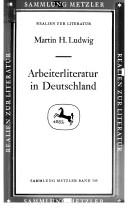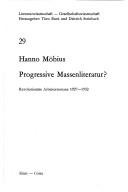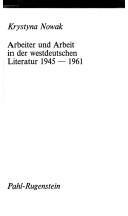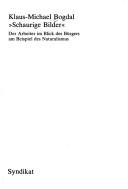| Listing 1 - 10 of 65 | << page >> |
Sort by
|
Book
ISBN: 0231525443 9780231525442 9780231151948 0231151942 Year: 2014 Publisher: New York, NY
Abstract | Keywords | Export | Availability | Bookmark
 Loading...
Loading...Choose an application
- Reference Manager
- EndNote
- RefWorks (Direct export to RefWorks)
Can there be a novel of the international working class despite the conditions and constraints of economic globalization? What does it mean to invoke working-class writing as an ethical intervention in an age of comparative advantage and outsourcing? No Country argues for a rethinking of the genre of working-class literature. Sonali Perera expands our understanding of working-class fiction by considering a range of international texts, identifying textual, political, and historical linkages often overlooked by Eurocentric and postcolonial scholarship. Her readings connect the literary radicalism of the 1930's to the feminist recovery projects of the 1970's, and the anticolonial and postcolonial fiction of the 1960's to today's counter globalist struggles, building a new portrait of the twentieth century's global economy and the experiences of the working class within it. Perera considers novels by the Indian anticolonial writer Mulk Raj Anand; the American proletarian writer Tillie Olsen; Sri Lankan Tamil/Black British writer and political journalist Ambalavaner Sivanandan; Indian writer and bonded-labor activist Mahasweta Devi; South African-born Botswanan Bessie Head; and the fiction and poetry published under the collective signature Dabindu, a group of free-trade-zone garment factory workers and feminist activists in contemporary Sri Lanka. Articulating connections across the global North-South divide, Perera creates a new genealogy of working-class writing as world literature and transforms the ideological underpinnings casting literature as cultural practice.
Book
ISBN: 9781611174038 1611174031 1306924642 9781306924641 9781611174021 1611174023 Year: 2014 Publisher: Columbia, South Carolina
Abstract | Keywords | Export | Availability | Bookmark
 Loading...
Loading...Choose an application
- Reference Manager
- EndNote
- RefWorks (Direct export to RefWorks)
Understanding Richard Russo explores the significant themes and patterns in this contemporary American author's seven novels, a memoir, and two short story collections, including the 2002 Pulitzer Prize-winning novel, Empire Falls. Known for assembling large casts of eccentric characters and sweeping multi-generational storylines, Russo brings to life hard-hit rural manufacturing towns and their inhabitants even as he explores the bewildering, painful complexities of family relationships. This critical study by Kathleen Drowne first recounts Russo's biography, then explores his novels chronolo
Book
ISBN: 1282035568 1443803960 9786612035562 9781443803960 9781443801058 1443801054 9781282035560 Year: 2008 Publisher: Newcastle upon Tyne, U.K. : Cambridge Scholars Pub.,
Abstract | Keywords | Export | Availability | Bookmark
 Loading...
Loading...Choose an application
- Reference Manager
- EndNote
- RefWorks (Direct export to RefWorks)
A Class of Its Own positions important and rediscovered American social protest authors Otherin both a scholarly and student-centered context. The volume draws on the expertise and pedagogy of established and younger scholars who move gracefully from theories of what makes a text "working class" to how studies of class empower college teachers and courses. Among the authors discussed in the volume's essays and prominent in the book's syllabi section are Zora Neale Hurston, Stephen Crane, Agnes...
Book
ISBN: 1108187285 1108181899 1108195695 1107197856 1316647919 Year: 2018 Publisher: Cambridge : Cambridge University Press,
Abstract | Keywords | Export | Availability | Bookmark
 Loading...
Loading...Choose an application
- Reference Manager
- EndNote
- RefWorks (Direct export to RefWorks)
How does the literature and culture of early Victorian Britain look different if viewed from below? Exploring the interplay between canonical social problem novels and the journalism and fiction appearing in the periodical press associated with working-class protest movements, Gregory Vargo challenges long-held assumptions about the cultural separation between the 'two nations' of rich and poor in the Victorian era. The flourishing radical press was home to daring literary experiments that embraced themes including empire and economic inequality, helping to shape mainstream literature. Reconstructing social and institutional networks that connected middle-class writers to the world of working-class politics, this book reveals for the first time acknowledged and unacknowledged debts to the radical canon in the work of such authors as Charles Dickens, Thomas Carlyle, Harriet Martineau and Elizabeth Gaskell. What emerges is a new vision of Victorian social life, in which fierce debates and surprising exchanges spanned the class divide.

ISBN: 3476101495 9783476101495 Year: 1976 Volume: 149 Publisher: Stuttgart Metzler
Abstract | Keywords | Export | Availability | Bookmark
 Loading...
Loading...Choose an application
- Reference Manager
- EndNote
- RefWorks (Direct export to RefWorks)
German literature --- Working class writings, German --- Working class in literature --- History and criticism --- -Working class in literature --- -German working class writings --- Laboring class writings, German --- Labor and laboring classes in literature --- Working class in literature. --- History and criticism. --- -History and criticism --- -Labor and laboring classes in literature --- German working class writings --- German literature - History and criticism --- Working class writings, German - History and criticism

ISBN: 3123942007 Year: 1977 Publisher: Stuttgart Klett-Cotta
Abstract | Keywords | Export | Availability | Bookmark
 Loading...
Loading...Choose an application
- Reference Manager
- EndNote
- RefWorks (Direct export to RefWorks)
German fiction --- -Working class in literature --- Working class writings, German --- -German working class writings --- Laboring class writings, German --- German literature --- Labor and laboring classes in literature --- History and criticism --- Working class in literature. --- History and criticism. --- -History and criticism --- -Labor and laboring classes in literature --- German working class writings --- Working class in literature

ISBN: 3760902979 Year: 1977 Publisher: Köln
Abstract | Keywords | Export | Availability | Bookmark
 Loading...
Loading...Choose an application
- Reference Manager
- EndNote
- RefWorks (Direct export to RefWorks)

ISBN: 381080083X Year: 1978 Publisher: Frankfurt am Main Syndikat
Abstract | Keywords | Export | Availability | Bookmark
 Loading...
Loading...Choose an application
- Reference Manager
- EndNote
- RefWorks (Direct export to RefWorks)
German literature --- Naturalism in literature. --- Working class in literature. --- Working class writings, German --- History and criticism. --- History and criticism --- Naturalism in literature --- Working class in literature --- Labor and laboring classes in literature --- Young Germany
Book
ISBN: 9783898617536 389861753X Year: 2007 Publisher: Essen Klartext Verlag
Abstract | Keywords | Export | Availability | Bookmark
 Loading...
Loading...Choose an application
- Reference Manager
- EndNote
- RefWorks (Direct export to RefWorks)
Book
ISBN: 1283864630 081355313X 9780813553139 9780813551890 9780813551906 0813551897 0813551900 Year: 2011 Publisher: New Brunswick, NJ
Abstract | Keywords | Export | Availability | Bookmark
 Loading...
Loading...Choose an application
- Reference Manager
- EndNote
- RefWorks (Direct export to RefWorks)
William Scott’s Troublemakers explores how a major change in the nature and forms of working-class power affected novels about U.S. industrial workers in the first half of the twentieth century. With the rise of mechanization and assembly-line labor from the 1890's to the 1930's, these laborers found that they had been transformed into a class of “mass” workers who, since that time, have been seen alternately as powerless, degraded victims or heroic, empowered icons who could rise above their oppression only through the help of representative organizations located outside the workplace. Analyzing portrayals of workers in such novels as Upton Sinclair’s The Jungle, Ruth McKenney's Industrial Valley, and Jack London’s The Iron Heel, William Scott moves beyond narrow depictions of these laborers to show their ability to resist exploitation through their direct actions—sit-down strikes, sabotage, and other spontaneous acts of rank-and-file “troublemaking” on the job—often carried out independently of union leadership. The novel of the mass industrial worker invites us to rethink our understanding of modern forms of representation through its attempts to imagine and depict workers’ agency in an environment where it appears to be completely suppressed.
| Listing 1 - 10 of 65 | << page >> |
Sort by
|

 Search
Search Feedback
Feedback About UniCat
About UniCat  Help
Help News
News